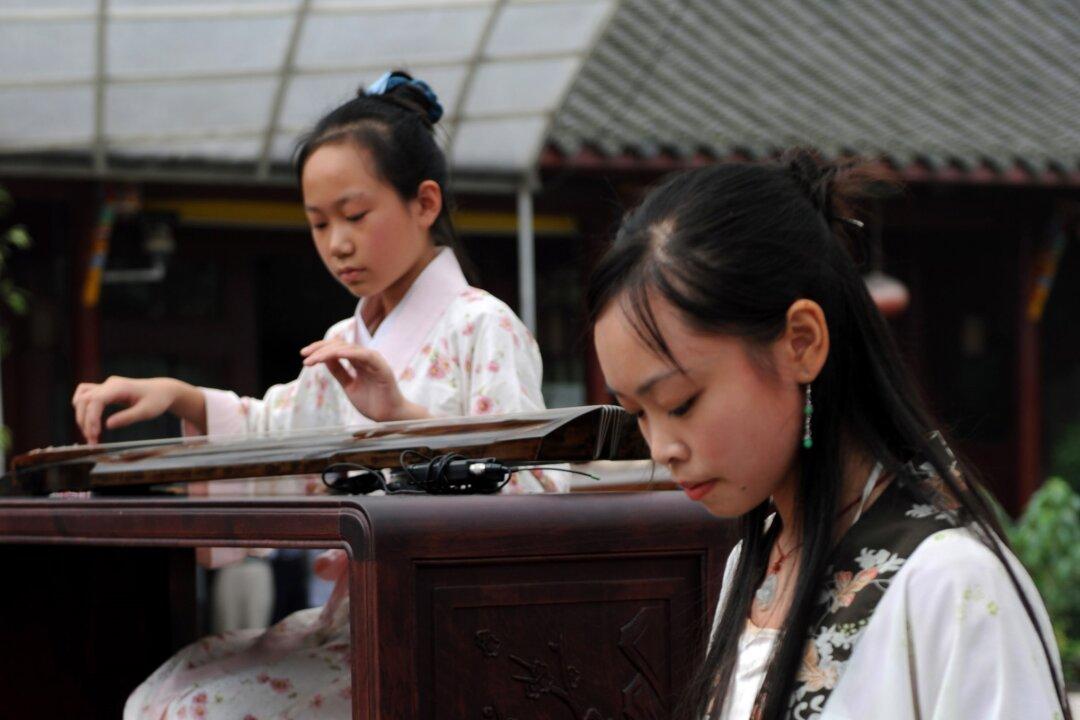One of the very first pieces of recorded Chinese literature is the “Classic of Poetry,” a collection of 3,000-year-old lyrics and verses of the early Zhou Dynasty. Compiled by Confucius, it is considered one of the five great Chinese scholarly works.
The first poem, “Cry of the Ospreys,” describes the marriage of King Wen, the first Zhou ruler, to his queen Tai Si. Flutes and drums and bells guide the royal couple to their union, which was understood to have been ordained by Shang Di, the emperor of heaven.
Confucius admired the early Zhou (1046 B.C.—770 B.C.) for its virtuous governance and upright culture, expressed in the maintenance of ritual or propriety, known in Chinese as “li.” For traditional Chinese, who saw the family as the basic unit of society, the prosperity of a royal or imperial house hinged on marriage. It was said that a half-divine sage ruler of Chinese legend, Fu Xi, had established civilization through the creation of marital rites.




